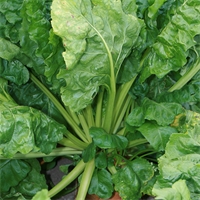15Jun
Where is your pork really from?
Words and images supplied from New Zealand Pork.
Over 95 percent of New Zealand’s pork production is PigCare™ certified and Made in NZ labelled. However, with consultation having closed on a new consumer information standard, pork lovers may be confused as to where their meat really comes from.
New Zealand Pork is a statutory industry board representing nearly 100 commercial pork farmers, producing mainly for the domestic market.
“We’re a relatively small industry but we play a significant part in the food chain – feeding millions of Kiwis each year,” says New Zealand Pork General Manager David Baines. On average, Kiwis eat 23.46kg of pork per capita annually, made up of 8.81kg of locally produced pork and 14.65kg of imported meat.
The latter equates to 62 percent of consumption and is often sold at cheaper prices. Labelling of these products is important, as no other country meets New Zealand’s animal welfare standards in all respects. The PigCare™ programme was developed by Massey University and supported by New Zealand Pork with input from veterinarians, pig farmers and the Ministry for Primary Industries (MPI).
From its launch in 2010, it has set a standard for pig farmers to assure consumers that health and wellbeing practices are maintained. As an assurance mark, it signals to shoppers that their meat comes from New Zealand-farmed pigs.
The PigCare™ label continues to grow as an all-encompassing farm assurance programme and is the only whole-of industry, independently managed and expertly verified (and audited) standard in the primary production sector.
“Our farming practices are world leading in areas such as animal welfare and the environment,” David says.
The PigCare™ label can get confused with country-of-origin labelling. A ‘Made in NZ’ label indicates to the average consumer that the entirety of the produce has been bred and raised in an ethical way, even if this is not the case.
For example, marinated raw pork is not required to specify its country of origin and can go so far as to present a Made in NZ label if the marinating was done in New Zealand, despite the pork itself being imported. The Consumers’ Right to Know (Country of Origin of Food) Act passed in Parliament in late 2018 and public feedback was recently sought on the proposals.
Under the Act, the country-of-origin labelling on pork products only applies to cured meats, such as ham and bacon. New Zealand Pork is taking these legislative gaps seriously and is voicing their concerns on behalf of consumers and producers.
“It’s important Kiwis know that by paying a premium for homegrown pork, they’re getting a cut above the rest,” says David. ”A strong ethical story behind food production, both that which is exported abroad and consumed locally, is becoming increasingly important. Industry bodies are at the forefront of that conversation, making sure that consumers are educated on all aspects, from labelling to quality assurance.
To know you are purchasing NZ produced pork look for the pigcare or the 100% NZ Pork stickers.
Related

For the next three months our focus for agri-chemical is on the following; fodder crops, pre-emergen...
Read More

Fall into autumn with this delicious Baked Brie recipe. The perfect accompaniment to any gathering o...
Read More

China is now the big engine driving New Zealand’s export value and volume for the primary sector, w...
Read More

Getting off the grid and onto a power supply that can still meet his relatively high-power needs has...
Read More

On the winding back roads in New Zealand’s beautiful South Island are two humble Kiwi blokes, Kylie...
Read More

Australia’s vast scale often means many New Zealanders carry a simplified, condensed version of it ...
Read More